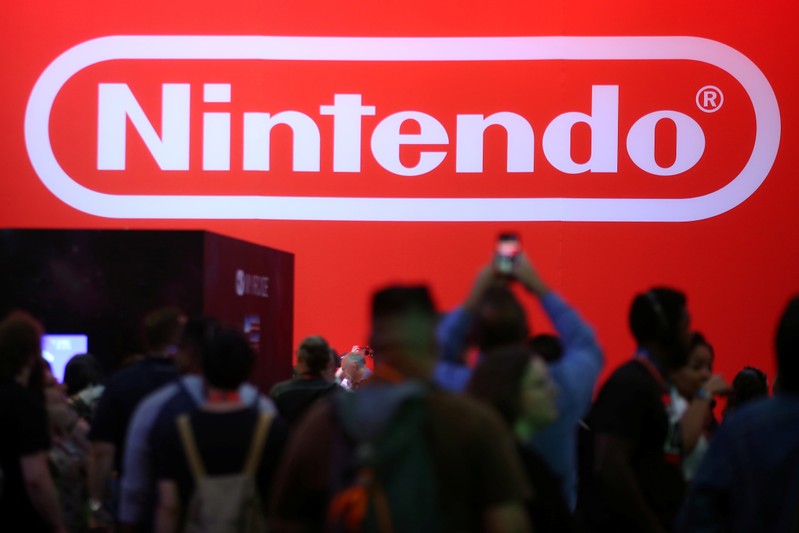
Sri Lanka plunged into turmoil when its prime minister was replaced with a former president who’s been associated with human rights violations. The sudden change of guard could impact policy-making and business confidence at a time of economic trouble, pushing the cash-strapped South Asian country even closer to Beijing.
President Maithripala Sirisena on Friday fired Prime Minister Ranil Wickremesinghe and swore in Mahinda Rajapaksa, who ruled the country from 2005 to 2015 before being defeated by Sirisena.
Sirisena then forced parliament into a three-week recess, preventing lawmakers from holding a no-confidence vote on Rajapaksa, whose previous regime was dominated by the suppression of free speech and harassment of critics. The U.S. State Department has since urged Sirisena to immediately reconvene parliament.
Rajapaksa’s appointment amounts to “an anti democratic coup,” Sri Lanka’s Minister of Finance and Mass Media Mangala Samaraweera said in a tweet. Wickremesinghe, meanwhile, has refused to give up his title as premier, claiming the president violated parliamentary processes and the constitution.
Rajapaksa’s return to power has already triggered violence and economists warn it could pose dire consequences for Sri Lanka’s democratic future, credit rating and financial markets. The new prime minister’s proximity to Beijing could also leave Colombo more vulnerable to increased Chinese influence, altering power dynamics around the Indian Ocean.
With Wickremesinghe refusing to leave office and Rajapaksa officially in power, the country is poised to enter a period of policy paralysis, according to strategists. That doesn’t bode well for foreign investment.
There are now “two competing power centers” that could see Sri Lanka enter “a constitutional crisis,” said Pratyush Rao, lead analyst for India and South Asia at Control Risks. The Rajapaksa-Sirisena camp are now likely to call for a snap parliamentary election and because Rajapaksa remains a popular figure among Sinhala Buddhists, who account for the majority of the population, he’s likely to fare well, Rao said.
The president’s support has been dwindling so he may be using Rajapaksa to bolster his government, Rao added.
Sri Lanka’s economy is already under duress — foreign exchange reserves have been sliding, pressuring the local currency — amid broader problems in global emerging markets. The latest political turmoil could further weaken international investor confidence.
“Investors will likely view the developments with concern because at best, it will limit the scope for economic policy/reforms, and at worst plunge the country into a prolonged political crisis,” said Shailesh Kumar, South Asia director at Eurasia Group.
Sri Lanka’s parliament has been suspended until 16 November. By that time, Sirisena will have amassed enough support for Rajapaksa to pass a no-confidence vote when one is eventually held, Kumar continued.
Moody’s has already sounded the alarm on the situation.
Rajapaksa being appointed prime minister “significantly heightens policy uncertainty” and could be “credit negative” for Sri Lanka’s sovereign rating, Matthew Circosta, Moody’s analyst, wrote in a note. “Additionally, the possible social tensions that may unfold in the next few weeks would have a negative impact on the economy, which is already growing slowly.”
Amid all these risks, Colombo’s ability to refinance external debt in early 2019 at affordable costs has also been thrown into question, Circosta added.
Under Rajapaksa’s rule, Sri Lanka moved closer to China’s orbit and further away from India, South Asia’s traditional leading power. With Colombo now in urgent need of foreign capital, Rajapaksa will likely facilitate more Chinese investments.
While Wickremesinghe sought to balance relations with New Delhi and Beijing, Rajapaksa made clear his willingness to accept Chinese money even in the face of unreasonable terms. In the past, Colombo has been forced to sell strategic assets to Beijing, such as the Hambantota port, when it wasn’t able to meet liabilities.
While Rajapaksa will likely tap access to Chinese capital to service Sri Lanka’s debt, other major foreign players operating in the island nation such as India and Japan are unlikely to experience immediate risks, according to Rao: “The government would not want to alienate these two countries through such moves.”
Rajapaksa’s appointment could also help the world’s second-largest economy notch a win against India as the two superpowers battle for supremacy in the region.
A recent election in the Maldives saw the previous China-backed government lose power to a pro-democracy party, pushing the tropical island closer to New Delhi. So, “while China lost the Maldives to India last month, it has gained back the upper hand in Sri Lanka,” said Eurasia’s Kumar.
Rajapaksa, a former strongman, is credited for ending Sri Lanka’s savage civil war in 2009. But he’s also under intense criticism for authoritarian rule that involved excessive military power, extrajudicial killings and enforced disappearances.
“The current government’s failure to bring justice to victims of war crimes under the Rajapaksa government reopens the door for past abusers to return to their terrible practices,” Brad Adams, Asia director at Human Rights Watch said in a statement.
In a televised address Sunday, Sirisena said his life was threatened by an alleged assassination plot involving a member of Wickremesinghe’s cabinet, which left him with no choice but to dismiss the prime minister.
But Sirisena’s image has been called into question of late amid several eyebrow-raising headlines. Last month, the president raged at Sri Lankan Airlines for serving him nuts that he said weren’t suitable for dogs let alone human consumption. The president also recently recalled his ambassador to Austria and other embassy staff for not answering his phone calls.

